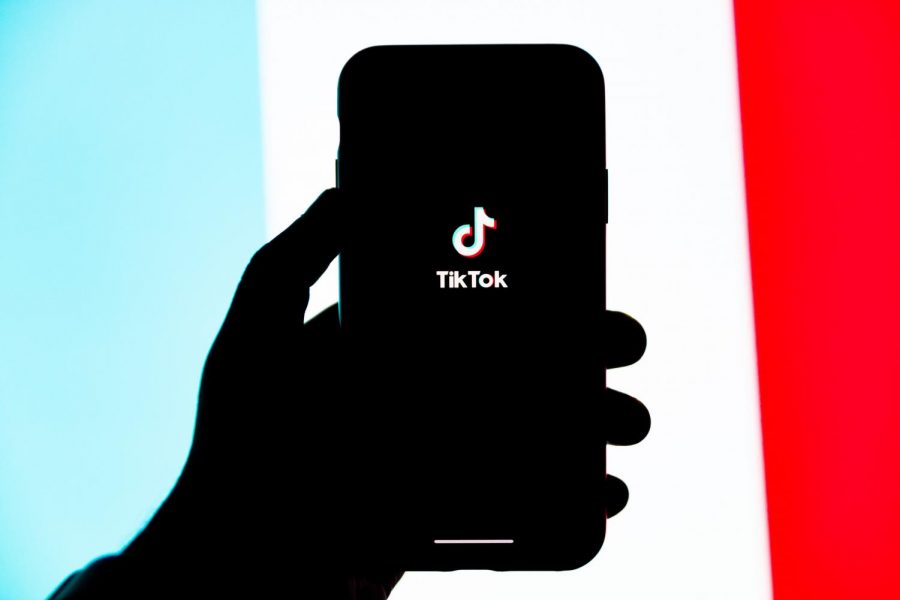Is TikTok safe from explicit, unsafe content?
Tik Tok is one of the most dominant apps on the digital market. It is available in 155 countries and over 75 languages with millions of users worldwide. With such a large user base Tik Tok gives everyday people the opportunity to communicate with others around the world.
This no doubt has positives, allowing groups of peoples with unique beliefs, and goals to gather and discuss their ideas although, not all of these ideas are safe, constructive, or appropriate. This space for near completely open discussion combined with concerns of privacy and security from the Chinese owned app have led some, including myself, to question whether the app is worth using.
For example, in Aug. 2020 a now defunct company known as Deep Social collected and stored the public data of 42,129,799 TikTok users according to SecurityMagazine. Deep Social then forwarded the information to the analytic company Social Data. Social data denies any connection with Deep Social, and a spokesperson for the company said “Please, note that the negative connotation that the data has been hacked implies that the information was obtained surreptitiously. This is simply not true, all of the data is available freely to ANYONE with Internet access.¨
This means that the collected information which contained profile names, full real names, profile photos, account descriptions, last post timestamps, age, and genders were all collected through public accounts. This ultimately means that having a public profile on TikTok with personal information puts you at risk for unknown data collection and sale.
As for security concerns, the app is owned by the Chinese company ByteDance. Concerns over privacy and the distribution of private information have often come up during discussion of the app. In Tik Tok´s own privacy policy they claim ¨We are committed to maintaining your trust, and while TikTok does not sell personal information to third parties, we want you to understand when and with whom we may share the information we collect for business purposes.¨
This means Tik Tok will share private information they collect on its users, even if they are not selling it. The privacy policy then states that Tik Tok shares categories of personal information for the purposes of research, payments and transactions, maintenance, and advertising and analytics. This means they give information collected through its users for the purpose of marketing, research, and analytics. For people concerned with the privacy of their personal information it is important to know ]creating a Tik Tok account will potentially compromise privacy to advertisers.
Although if you ask many users of the app most would be ok with the potential trade of personal information. Fellow OPRF students have told me ¨ I don’t particularly care.¨ and ¨I don’t care if they are taking are information in bulk to get a sense of what people like.¨ It is clearly stated in the privacy policy so it’s not necessarily dishonest. Although, if you are concerned with advertisers potentially obtaining personal information then not downloading the app and creating an account is advised.
A larger risk and downside of the app is potential insensitive or unpleasant content which often targets POC and members of the LGBTQ+ community. For example, a video of a man dressed in a police uniform and on a police motorcycle was captioned with a description about how is going to ¨hunt¨ african americans. The sound playing in the background of this video was a man saying various racial slurs towards African Americans. Many comments on videos, particularly videos like the one previously mentioned are also incredibly insensitive and unpleasant. Specifically, many users make comments mocking the victims of police brutality like George Floyd and Breonna Taylor. Many users also set their profile photos to mockingly edited photos of victims of hate crimes and police brutality.
From personal experience as well as the experience of fellow OPRF students, Tik Tok´s content moderation is terrible. Insensitive, gruesome, and illegal content often slip through the cracks of the app. This cannot be intentional as Tik Toks terms of service state any material that is ¨deliberately designed to provoke or antagonise people, especially trolling and bullying, or is intended to harass, harm, hurt, scare, distress, embarrass or upset people, any material that contains a threat of any kind, including threats of physical violence and any material that is racist or discriminatory, including discrimination on the basis of someone’s race, religion, age, gender, disability or sexuality.¨
Tik Toks stance on insensitive content is a clear zero tolerance policy. Although actions speak louder than words, and Tik Tok is often silent when it comes to these issues. Too many times videos that clearly break the terms of service, sometimes multiple times have reached hundreds of thousands of likes and shares. Many of these videos still remain up on the site. This raises many questions, the largest being the safety of young children and minors. Many of us have younger sisters, brothers, cousins, or family friends. How would you feel if someone young you cared about saw something insensitive and gruesome?
All of this information is important in making the decision of keeping Tik Tok installed. Tik Tok does pose various threats to one’s security and emotional status. Videos targeting vulnerable groups of people can be extremely disheartening and emotionally draining. This combined with the variou security risks due to Tik Toks trading and leaking of information bring me to the conclusion that Tik Tok is not worth using.







